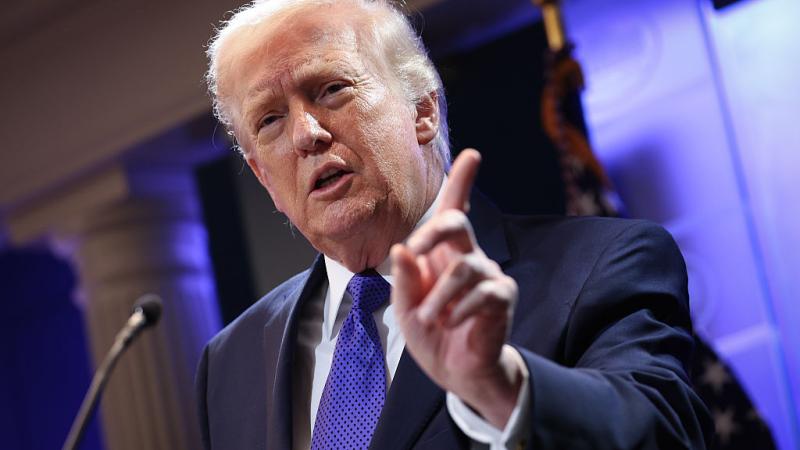FBI opened Russia probe on third-hand 'suggestion' of collusion, declassified memo shows
Former FBI executive says memo shows probe should never have been opened up "in a million years."
The FBI's probe into whether the Trump campaign colluded with Russia was opened on a third-hand "suggestion" of wrongdoing and the thinnest of suspicions that illegal foreign lobbying had occurred, according to a declassified memo released Friday that shows agents immediately flagged the strong limitations of their evidence.
The July 31, 2016 electronic communication that officially open the counterintelligence investigation codenamed Crossfire Hurricane was obtained by the conservative watchdog group Judicial Watch.
It shows the criminal basis for opening the probe was suspected violations of the Foreign Agent Registration Act, but it did not identify a single episode that it said violated the law.
Rather it focused on a "suggestion" passed on by Australian ambassador Alexander Downer that Trump campaign adviser George Papadopoulos might be coordinating with Russia the release of damaging information about Hillary Clinton.
Downer had heard the information about the Russians during a bar conversation in May 2016 from Papadopoulos, who had heard it two months earlier from a European professor who had heard it from Russians allegedly.
The memo shows the case agent, Peter Strzok, expressed some doubts and reservations about the limitations of the evidence even as he opened the probe.
The memo cited concerns about "suggestions from the Russians that they (the Russians) could assist the Trump campaign with the anonymous release of information during the campaign that would be damaging to Hillary Clinton."
Papadopoulos "suggested the Trump team had received some kind of suggestion from Russia" that it had damaging information, the memo said. But Strzok's memo immediately noted the limitations of the allegations forwarded from the Australians.
"It was unclear whether he or the Russians were referring to material acquired publicly of through other means. It was also unclear how Mr. Trump’s team reacted to the offer," the memo stated.
Kevin Brock, the former chief of intelligence for the FBI, said the electronic communication did not meet the bureau's rigorous standards for predicating the opening of a criminal or counterintelligence case.
"There is nothing in the EC that meets the traditional thresholds for opening up a FARA or CI investigation," Brock told Just the News. "It appears hastily constructed."
The memo also contains evidence of other red flags, Brock explained, including that Strzok both drafted and approved the opening of his own investigation and originally segregated the memo so it could only be seen by "case participants" and not other FBI officials.
Asked whether as an FBI assistant director he would have approved opening Crossfire Hurricane based on what was in the memo, Brock said: "Not in a millions years. I wouldn’t have approved it as a squad supervisor either. This would have set off alarm bells in any FBI field for not meeting our standards for a predicate."
Judicial Watch President Tom Fitton agreed, saying the newly declassified memo revealed that there "was no serious basis for the Obama administration to launch an unprecedented spy operation on the Trump campaign."
"We now have more proof that Crossfire Hurricane was a scam, based on absurd gossip and innuendo. This document is Exhibit A to Obamagate, the worst corruption scandal in American history," Fitton said.
The Facts Inside Our Reporter's Notebook
Documents
Read the electronic communication that started the entire FBI Russia probe.















